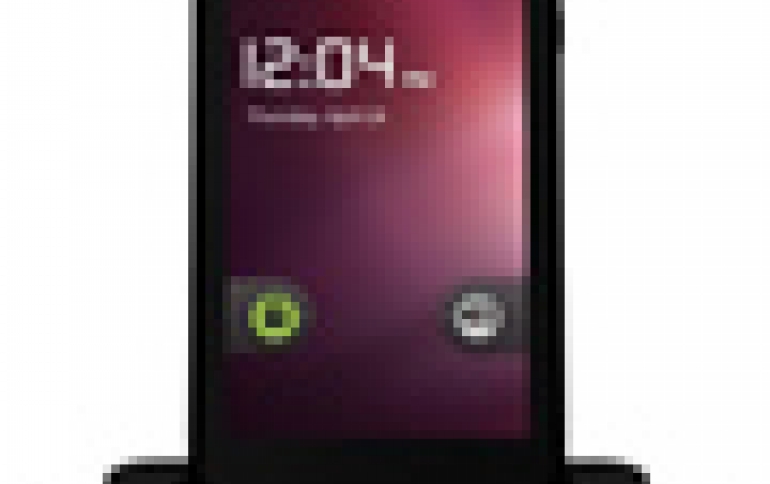
Ubuntu Running On Android Smartphones At MWC
Canonical today unveiled Ubuntu for Android, bringing the free desktop experience to multi-core Android smartphones docked with a keyboard and monitor.
Canonical brings Android and Ubuntu running simultaneously on the same device, allowing users to share their contacts, messages and other common services.
The phone experience is pure Android. When the device is connected to a computer screen, however, it launches a full Ubuntu desktop on the computer display. It's exactly the same desktop used by enterprise and home users on their Ubuntu PCs, and includes certified applications, from office productivity to photography, video and music.
All data and services are shared between the Ubuntu and Android environments, which run simultaneously on the device. So Android applications such as contacts, telephony and SMS/MMS messaging are accessible from the Ubuntu interface. Indeed, all data on the smartphone can be accessed at any time, docked or not.

Ubuntu for Android gives mobile workers a company phone that is also their enterprise desktop. Government and private institutions have embraced Ubuntu on the desktop because of its ease of use, security, manageability and support for web browsers like Chrome and Firefox. The desktop can also include Windows applications, using thin client and desktop virtualisation tools.
"The desktop is the killer-app for quad-core phones in 2012" says Mark Shuttleworth. "Ubuntu for Android transforms your high-end phone into your productive desktop, whenever you need it"
Manufacturers targeting the corporate phone, as well as the next-generation enterprise desktop and thin clients, can add Ubuntu for Android to their smartphones. The customized version of Ubuntu drops in alongside the rest of Android, and the necessary Android modifications are designed for easy integration. Hardware requirements include support for HDMI and USB, standard features in high-end handsets planned for late 2012.
The phone experience is pure Android. When the device is connected to a computer screen, however, it launches a full Ubuntu desktop on the computer display. It's exactly the same desktop used by enterprise and home users on their Ubuntu PCs, and includes certified applications, from office productivity to photography, video and music.
All data and services are shared between the Ubuntu and Android environments, which run simultaneously on the device. So Android applications such as contacts, telephony and SMS/MMS messaging are accessible from the Ubuntu interface. Indeed, all data on the smartphone can be accessed at any time, docked or not.

Ubuntu for Android gives mobile workers a company phone that is also their enterprise desktop. Government and private institutions have embraced Ubuntu on the desktop because of its ease of use, security, manageability and support for web browsers like Chrome and Firefox. The desktop can also include Windows applications, using thin client and desktop virtualisation tools.
"The desktop is the killer-app for quad-core phones in 2012" says Mark Shuttleworth. "Ubuntu for Android transforms your high-end phone into your productive desktop, whenever you need it"
Manufacturers targeting the corporate phone, as well as the next-generation enterprise desktop and thin clients, can add Ubuntu for Android to their smartphones. The customized version of Ubuntu drops in alongside the rest of Android, and the necessary Android modifications are designed for easy integration. Hardware requirements include support for HDMI and USB, standard features in high-end handsets planned for late 2012.



















